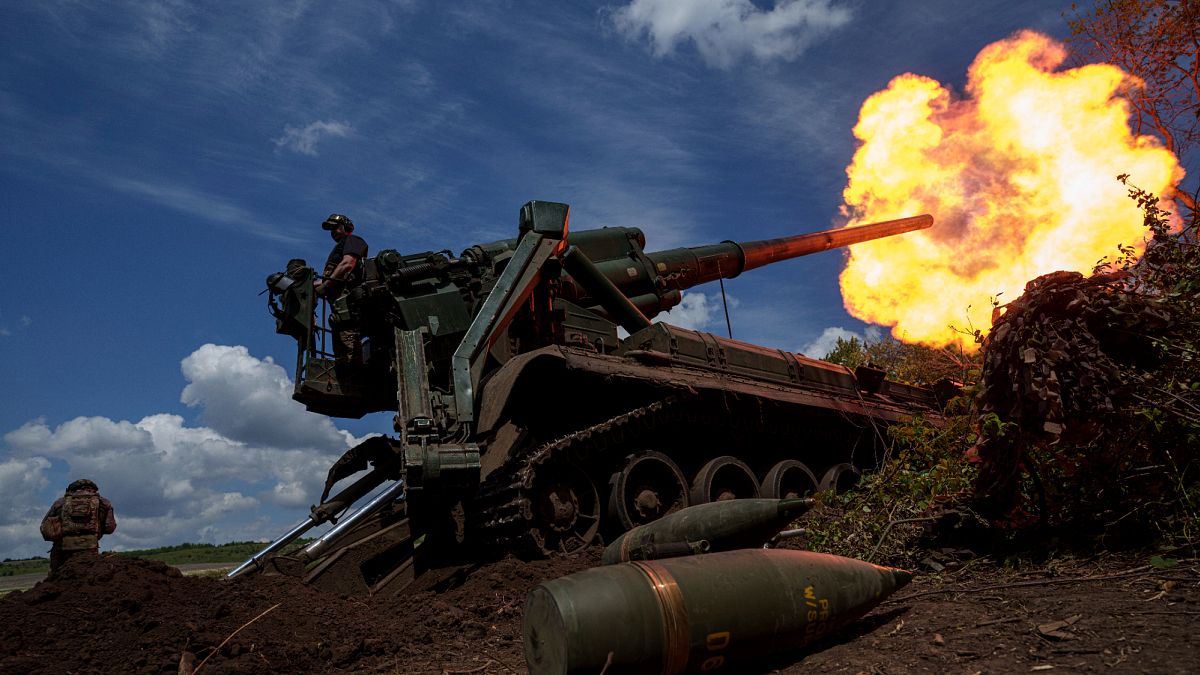Europe
US officials to visit Europe to discuss ways to end Ukraine war

US Pursues Diplomatic Efforts to End Ukraine War
The United States, under President Donald Trump, has intensified its efforts to bring an end to the ongoing war in Ukraine, which has now entered its third year since Russia’s full-scale invasion in 2022. In a significant development, senior members of the Trump administration, including National Security Advisor Mike Waltz, are set to meet with European officials this week to discuss strategies for ending the conflict. These discussions come on the heels of a reported phone call between President Trump and Russian President Vladimir Putin, where the two leaders allegedly explored steps toward a negotiated solution. However, neither the White House nor the Kremlin has officially confirmed this conversation, and Waltz refrained from commenting on it during a television interview.
Economic Pressure and Diplomatic Leverage
Waltz emphasized the deteriorating state of the Russian economy, which has been heavily strained by Western sanctions, inflation, and a severe labor shortage. He underscored the administration’s willingness to impose further economic pressures, including tariffs and sanctions, to compel Putin to negotiate. "The Russian economy is not doing well," Waltz stated, adding that President Trump is prepared to take punitive economic measures to bring Moscow to the negotiating table. Despite these economic challenges, Putin faces little domestic pressure to end the war, as he has cracked down on dissent more aggressively than at any time since Soviet rule.
Shift in US Support for Ukraine
In addition to seeking a diplomatic resolution, the Trump administration has indicated a shift in its approach to supporting Ukraine. Waltz revealed that the administration plans to initiate discussions this week about reducing the level of US assistance to Ukraine, with the aim of recovering some of the costs incurred. He suggested that this effort would involve partnerships with Ukraine, particularly in the realms of natural resources, oil, and gas. Waltz also emphasized the need for European allies to take on a greater role in supporting Ukraine moving forward, stating, "The Europeans have to own this conflict going forward." He made it clear that while President Trump aims to end the war, the long-term security guarantees for Ukraine will primarily be the responsibility of European nations.
High-Level Diplomatic Engagement
Several high-ranking officials in the Trump administration are scheduled to participate in key international meetings this week to advance these diplomatic efforts. Vice President JD Vance will attend an artificial intelligence summit in Paris before heading to the Munich Security Conference, where Ukrainian President Volodymyr Zelenskyy will lead his country’s delegation. Other prominent officials, including Secretary of State Marco Rubio, Defense Secretary Pete Hegseth, and Trump’s special envoy on Ukraine and Russia, Keith Kellogg, will also attend the Munich conference. Additionally, Hegseth will join the UK-convened Ukraine Defence Contact Group meeting at NATO headquarters in Brussels, where representatives from approximately 50 countries will gather to discuss arms and ammunition support for Ukraine.
Ukraine’s Concerns Over Exclusion from Negotiations
Meanwhile, there are growing concerns in Kyiv about the potential exclusion of Ukraine from direct negotiations between the US and Russia. During his presidential campaign, Trump boasts that he could end the war in as little as 24 hours, though his timeline has since extended to six months without providing specific details. The administration has reportedly engaged in "very serious" discussions with Russia without involving Ukrainian officials, a move that contradicts the Biden administration’s stance of "Nothing about Ukraine without Ukraine." President Zelenskyy has warned that excluding Kyiv from peace talks could embolden authoritarian leaders in other regions, such as China, North Korea, and Iran, by signaling that aggression can yield favorable outcomes.
The Path Ahead and Broader Implications
Despite the challenges, President Trump has expressed optimism that he and Putin could soon take "significant" steps toward ending the war. Russia is currently suffering heavy daily casualties and economic hardship, but its resolve to continue the conflict remains unshaken due to Putin’s tight grip on power and suppression of dissent. The international community remains divided on the best path forward, with the US and its European allies navigating a delicate balance between applying pressure on Russia, supporting Ukraine, and avoiding further escalation. As diplomatic efforts intensify, the outcome of these negotiations will have far-reaching implications not only for Ukraine but also for global stability and the future of international relations.